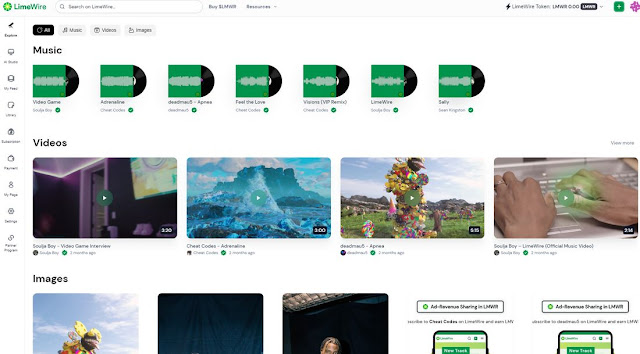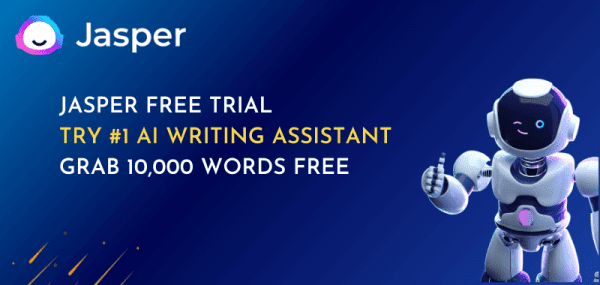Looking to level up your content creation game in 2025? You’re in the right place! The digital landscape has evolved dramatically, and AI tools have become essential for creators who want to stay ahead of the curve. In this guide, I’ll show you the top 10 AI tools that are revolutionizing content creation and making creators’ lives easier.
Why You Need These AI Tools in 2025
Content creation has become more demanding than ever. Whether you’re a social media influencer, marketer, or business owner, keeping up with the constant need for fresh, engaging content can be overwhelming. That’s where AI tools come in – they’re not just fancy tech, they’re your secret weapon for creating better content faster.
Let’s Dive Into the Top 10 AI Tools for 2025
1. ChatGPT: Content Ideation and Scriptwriting
What Makes It Special: ChatGPT has evolved into a comprehensive content creation assistant by combining advanced language understanding with specialized content optimization features. Its ability to generate, edit, and optimize content while maintaining brand voice and industry expertise makes it an essential tool for creators who need to produce high-quality written content at scale.
Key Features:
- Advanced content generation
- SEO optimization
- Brand voice maintenance
- Research capabilities
- Multi-format adaptation
Pricing:
- Free tier available
- Plus: $20/month
- Pro: $200/month
Perfect For: Content writers, marketers, and businesses needing consistent, high-quality written content.
2. Canva Magic Studio: Visual Design and Social Media Content Creation
What Makes It Special: Canva Magic Studio has transformed the graphic design landscape by combining its user-friendly interface with powerful AI capabilities. The platform’s ability to understand design principles and automatically generate on-brand content while maintaining professional aesthetics makes it accessible for beginners while providing enough sophistication for professional designers.
Key Features:
- AI design generation
- Brand kit integration
- Magic resize
- Animation tools
- Template library
Pricing:
- Free tier available
- Pro: $6.50/user/month
- Teams: $5/user/month
Perfect For: Small businesses, social media managers, and anyone needing quick, professional-looking designs.
3. RunwayML : AI Video Generator
What Makes It Special: RunwayML stands out as the ultimate video creation powerhouse by combining professional-grade effects with user-friendly AI technology. Its game-changing ability to manipulate video content – from changing weather effects with a text prompt to removing objects seamlessly in real-time – makes it indispensable for creators who want to produce high-quality video content without getting bogged down by technical complexities.
Key Features:
- Advanced video generation & editing
- Real-time visual effects
- Smart motion tracking
- Green screen effects without actual green screen
- AI-powered editing suite
Pricing:
- Free tier available
- Standard: $12/month
- Pro: $28/month
- Unlimited: $76/month
- Enterprise: Custom Price
Perfect For: Video creators, YouTubers, and social media managers who want to create professional-quality videos quickly.
4. MidJourney: AI Art Generation
What Makes It Special: Midjourney V6 has redefined AI image generation by mastering the nuances of professional photography and artistic style. Its ability to understand and execute complex creative directions – from specific lighting conditions to branded visual styles – while maintaining consistent quality across multiple generations makes it the go-to tool for creators who need stunning visuals that align perfectly with their brand identity.
Key Features:
- Photorealistic image generation
- Advanced style control
- Quick generation time
- Commercial usage rights
- Strong community support
Pricing:
- Basic: $10/month
- Standard: $30/month
- Pro: $60/month
- Mega: $120/month
Perfect For: Social media managers, digital marketers, and anyone needing professional-quality visuals consistently.
5. Synthesia: AI Avatar-Based Video Creation
What Makes It Special: Synthesia has transformed video creation by making it possible to create professional-looking AI avatar videos in minutes. Its ability to generate natural-looking presentations in multiple languages with synchronized lip movements and gestures makes it invaluable for creators who need to produce video content at scale without the traditional filming process.
Key Features:
- AI avatar Video creation
- Multi-language support
- Custom avatar options
- Professional templates
- Script to video conversion
Pricing:
- Free tier available
- Starter: $18/month
- Creator: $64/month
- Enterprise: Custom pricing
Perfect For: Businesses and educators creating training videos, presentations, and multilingual content.
6. Descript: Podcast and Video Editing with Transcription Features
What Makes It Special: Descript has transformed audio and video editing by making it as simple as editing a text document. Its innovative approach to media editing, combined with powerful AI features like automatic transcription and filler word removal, makes professional-quality editing accessible to creators of all skill levels.
Key Features:
- Text-based video editing
- Automatic transcription
- Filler word removal
- Screen recording
- Collaborative editing
Pricing:
- Hobbyist: $12/month
- Creator: $24/month
- Business: $40/month
- Enterprise: Custom pricing
Perfect For: Podcasters, video creators, and teams needing efficient audio/video editing solutions.
7. ElevenLabs: AI VOICE GENERATION
What Makes It Special: ElevenLabs has revolutionized voice synthesis by achieving unprecedented levels of natural speech quality and emotional expression. Its ability to clone voices accurately and generate multiple languages with proper accents and inflections makes it the ultimate tool for creators who need professional-quality voiceovers without the traditional recording process or voice actor limitations.
Key Features:
- Ultra-realistic voice synthesis
- Voice cloning capability
- Multi-language support
- Emotion control
- Real-time generation
Pricing:
- Free tier available
- Starter: $5/month
- Creator: $11/month
- Pro: $99/month
- Scale: $330/month
- Business: $1321/month
- Enterprise: Custom pricing
Perfect For: Podcasters, video creators, and content creators needing professional voiceovers in multiple languages.
8. Tribescaler: Viral Content and Headline Optimization
What Makes It Special: Tribescaler brings a scientific approach to viral content creation by combining trend analysis with content optimization. Its powerful AI engine analyzes successful content patterns across platforms and provides actionable insights to help creators craft content that’s more likely to go viral, while maintaining authenticity and audience engagement.
Key Features:
- Viral content prediction
- Trend analysis
- Content optimization
- Performance tracking
- Multi-platform scheduling
Pricing:
- Free tier available
- Pro: $49/month
Perfect For: Content creators and social media managers focused on maximizing reach and engagement.
9. Clickable: Automated Ad Creation and Optimization
What Makes It Special: Clickable revolutionizes ad creation by seamlessly blending data-driven insights with creative automation. Its ability to analyze brand assets and automatically generate platform-optimized ad variations while maintaining brand voice transforms the tedious process of ad creation into a streamlined, results-driven workflow that consistently delivers high-performing content.
Key Features:
- Automated ad creation
- Multi-platform optimization
- Built-in A/B testing
- Performance analytics
- Template library
Perfect For: Digital marketers and businesses looking to scale their ad production efficiently.
10. Copy AI
What Makes It Special: CopyAI has established itself as a powerhouse in AI-powered copywriting by offering specialized content generation for various marketing formats. Its sophisticated understanding of marketing psychology and brand voice, combined with its ability to generate compelling copy across multiple formats and industries, makes it invaluable for marketers and content creators who need to produce engaging, conversion-focused content at scale.
Key Features:
- Advanced marketing copy generation
- Multiple content type templates
- Brand voice customization
- Multilingual support
- A/B testing variations
Pricing:
- Free tier available
- Pro: $49/month
- Advanced: $249/month
- Enterprise: Custom pricing
Perfect For: Marketing teams, copywriters, and businesses needing high-converting marketing copy across multiple channels.
Conclusion
The AI tools listed here are revolutionizing the content creation landscape in 2025, making it easier than ever to produce high-quality, engaging, and impactful content. By integrating these tools into your workflow, you can save time, unleash your creativity, and achieve better results.
AI doesn’t replace creativity; it amplifies it. As a content creator, your unique voice and vision are irreplaceable. These tools serve as enablers, helping you focus on what you do best—creating. Explore, experiment, and innovate. The future of content creation is here, and it’s brimming with possibilities.
Embrace these technologies, stay ahead of the curve, and watch your creative potential soar. The only limit is your imagination!
Note:
All features and pricing information are subject to change. Please verify current details with the respective platforms, Also this article contain affiliate links which means we make a small comission if yo buy any premium plan from our links









.webp)
